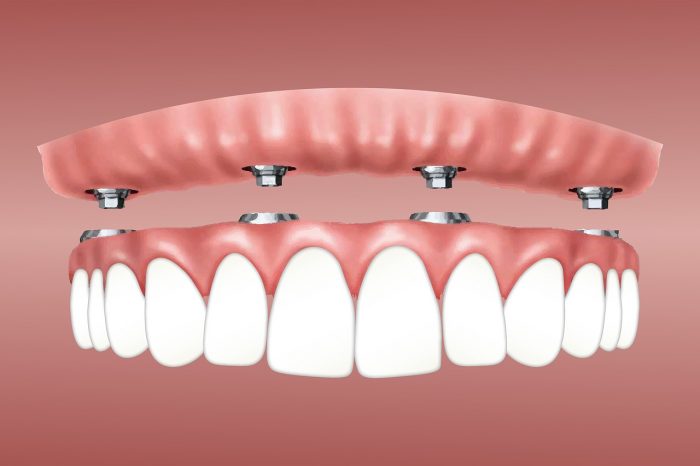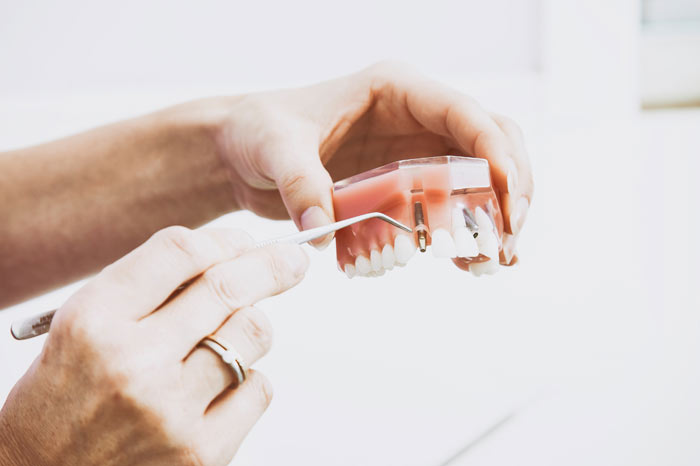We often find ourselves in need of tooth replacement due to injury, cavity, or other unfortunate reasons. For this reason, we opt for artificial teeth that work just the same as natural ones. However, these teeth cannot be placed directly on our gums; they need a solid base to provide stability and support. Hence, dental implants are first placed into the jawbone beneath the gums. Once these implants are all settled in, an artificial tooth is put onto them.

The implants are usually made of Titanium, an optimum material that fuses with the jawbone firmly and prevents the artificial tooth from slipping and damaging the bone. One significant advantage with the implants is that they are not organic, so they don’t decay much like our other tooth structures. Therefore, if you have one or more missing teeth and are willing to commit to months, dental implants are the best solution for you.
But, it is vital that you maintain proper oral hygiene before the surgery and also after that. If you ignore your mouth cleanliness, plaque will build up around the implants causing infection and other oral problems. The risk of bleeding gums and other gum-related diseases along with bone loss increases. Here are some tips for you regarding proper care and maintenance of your All on 4 implants.
Brush thoroughly and regularly
Brushing our teeth regularly is probably the most redundant advice we ever get from our elders. This especially makes sense when going through the implant process because you cannot risk any food fragment getting stuck in your gums and inviting germs and bacterias. Brushing your teeth two times a day is considered optimum in maintaining proper oral hygiene.
However, be diligent in your choice of toothbrush. Always pick a toothbrush with soft bristles and a flexible neck capable of cleaning the most profound areas of your mouth conveniently. Stiff bristles bruise the gums and cause bleeding, enabling the bacterias to get in and causing infections. Too much brushing can also hurt because it may remove the outer layering of the tooth. Therefore, brushing for 2-3 minutes might do the trick.
Floss regularly
Most of us don’t care about flossing our teeth in routine. We only pick our floss when we are irritated by a food fiber stuck in our teeth. But, flossing is very beneficial to oral hygiene. It can venture in the narrow lanes between your teeth and remove tiny food particles that get stuck unknowingly. Additionally, flossing will also remove any extra plaque build-up that our toothbrush usually misses.
Avoid hard or sticky foods
It is crucial to monitor your eating habits while you are in the process of implants. The two demons are sticky and hard food items. Hard foods such as candy, ice, dry fruit, etc., can put unprecedented pressure on the implants and distort their original structure. Similarly, sticky foods such as eclairs, chewing gum, etc., can get stuck in your cavities and cause damage.

Avoid smoking and alcohol
Smoking and alcohol are bad for your overall health, but they significantly impact dental implants. It is recommended that you stay off these substances for at least six months from getting the implants. Smoking cuts off the oxygen supply in the body and affects the blood flow to the implant area. Similarly, alcohol also slows down the healing process.
Visit your dentist regularly
Do not cancel or postpone your dentist appointments. Your dentist will monitor the healing process and look for any signs of infections and other diseases and do the needful to stop them at their onset. Also, he will give recommendations on the maintenance of oral hygiene and food habits to provide for an accelerated healing process.










